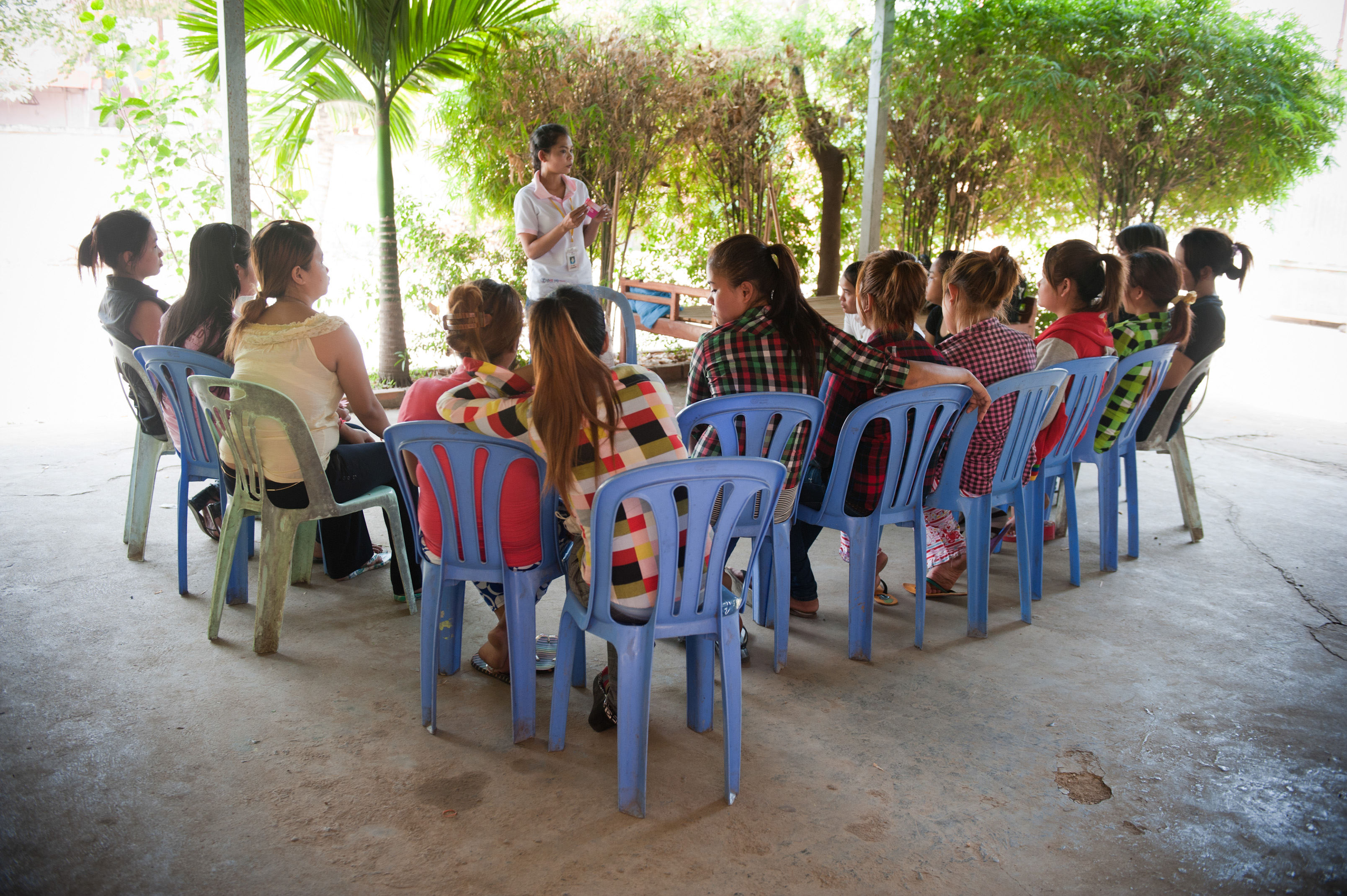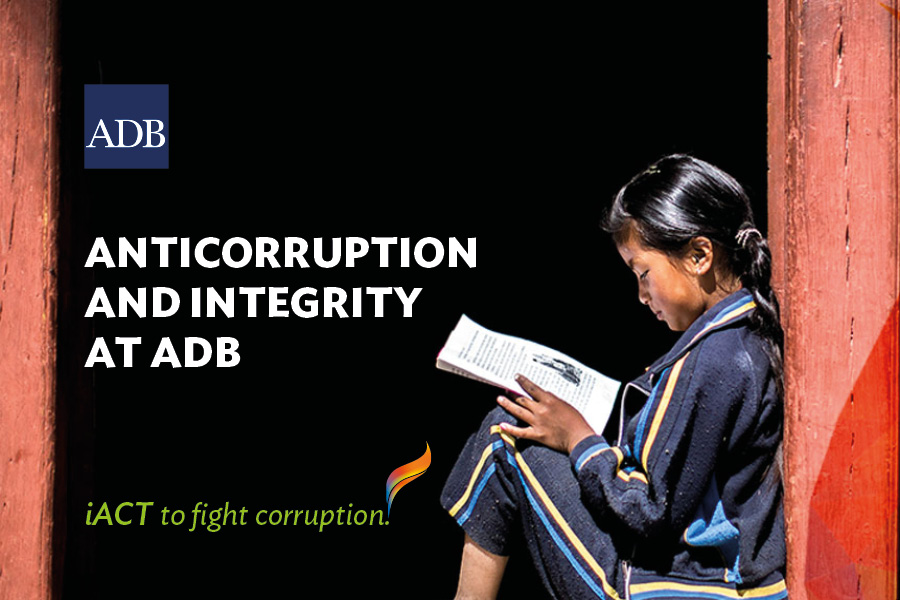
Anticorruption and Integrity at ADB
ADB’s mission is to support development in Asia and the Pacific, and this includes helping developing member countries (DMCs) fight corruption.This module defines corruption and its impact on development. It also provides an overview of ADB's Anticorruption Policy and Integrity Principles and Guidelines, which are the main policy documents and the cornerstone of ADB's Integrity framework. Finally, this module identifies practices that constitute integrity violations and shows examples of each integrity violation.

Are you an Integrity Champion?
Developed by the Office of Anticorruption and Integrity (OAI), this refresher course provides the learner a review of concepts and guidelines earlier introduced in the Anticorruption and Integrity course. It also provides likely scenarios where the learner applies critical thinking and knowledge of ADB’s Anticorruption Policy and Code of Conduct to select the most plausible response.
This course uses game elements to motivate learners and facilitate learning. For technical inquiries/assistance, email oaitraining@adb.org.

Combating Money Laundering and Terrorist Financing
Learn how to identify the key requirements that ensure a firm is implementing a sound policy framework to combat money laundering and terrorist financing.
Disclaimer: The e-learning modules provide an introduction and overview of money laundering and terrorist financing and how these can be prevented. While every reasonable effort has been made to ensure that the contents are factually correct, ADB does not guarantee the accuracy and/or completeness of the modules’ contents, and accepts no responsibility for any direct or indirect consequence of their use or reliance, whether wholly or partially.

Deepening CSO Engagement for Better Development Results
In 2012, the Asian Development Bank's NGO and Civil Society Center (NGOC) published Strengthening Participation for Developmental Results. It has been a valuable resource for ADB staff, government officials, and civil society organizations. This guide is the basis of the e-course, Deepening Civil Society Engagement for Better Development Results.
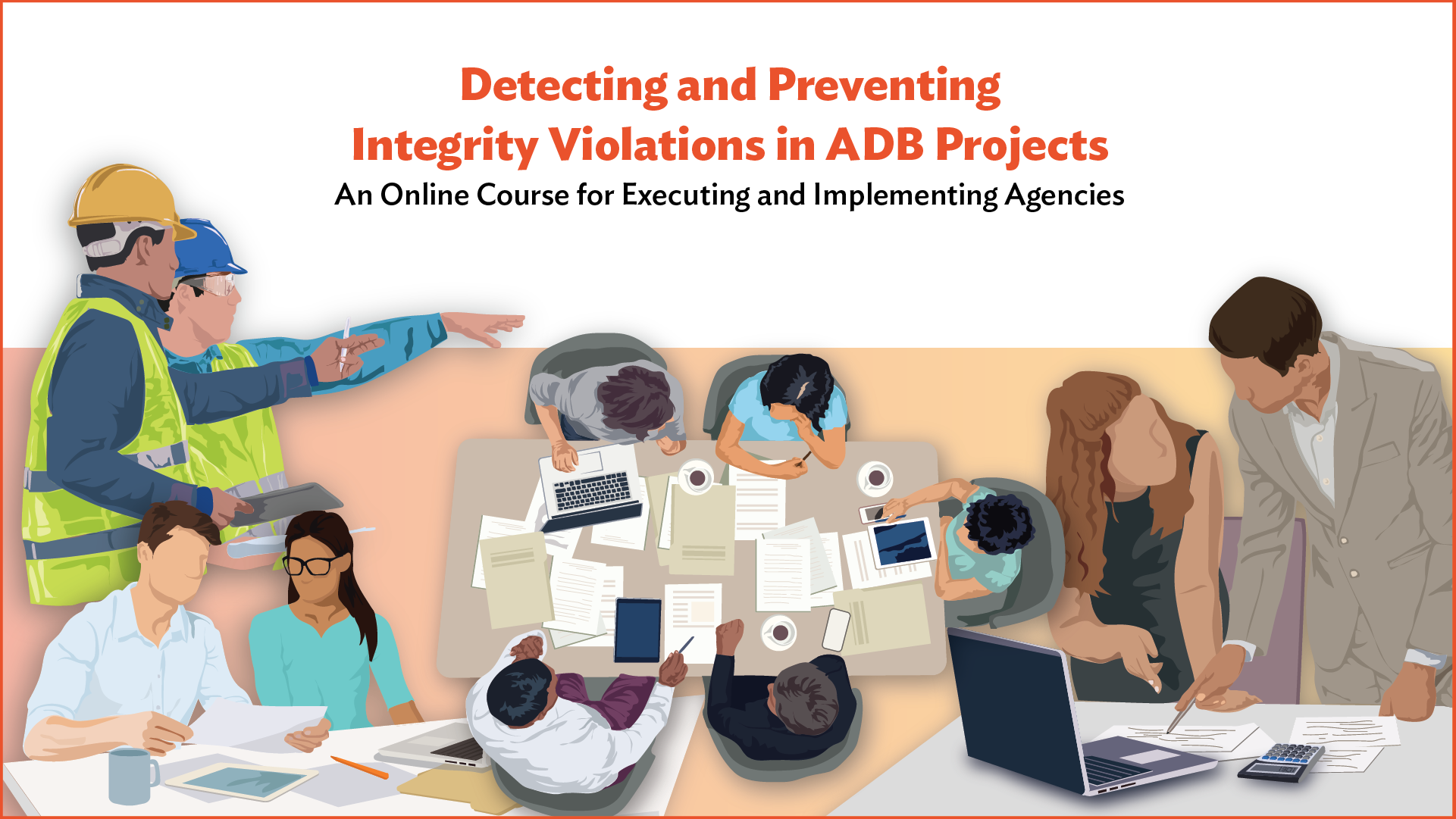
Detecting and Preventing Integrity Violations in ADB Projects: An Online Course for Executing and Implementing Agencies
This course outlines key areas of anticorruption and integrity as they relate to ADB-related activities. It will highlight how and where corruption commonly occurs in project implementation: procurement, asset and contract management, and financial management. The course features examples and exercises to help you understand and apply the concepts presented.
Foundational Course on Grievance Redress Mechanism
This course is a foundational module designed to introduce learners to key concepts in grievance redress mechanisms, and is best completed prior to face-to-face learning. Topics include exploring what is a grievance redress mechanism, examining what are the key elements of effective complaint handling and the steps undertaken in handling complaints. The module also investigates the key personal skills required by problem solvers and the main roles and responsibilities of the grievance redress committee
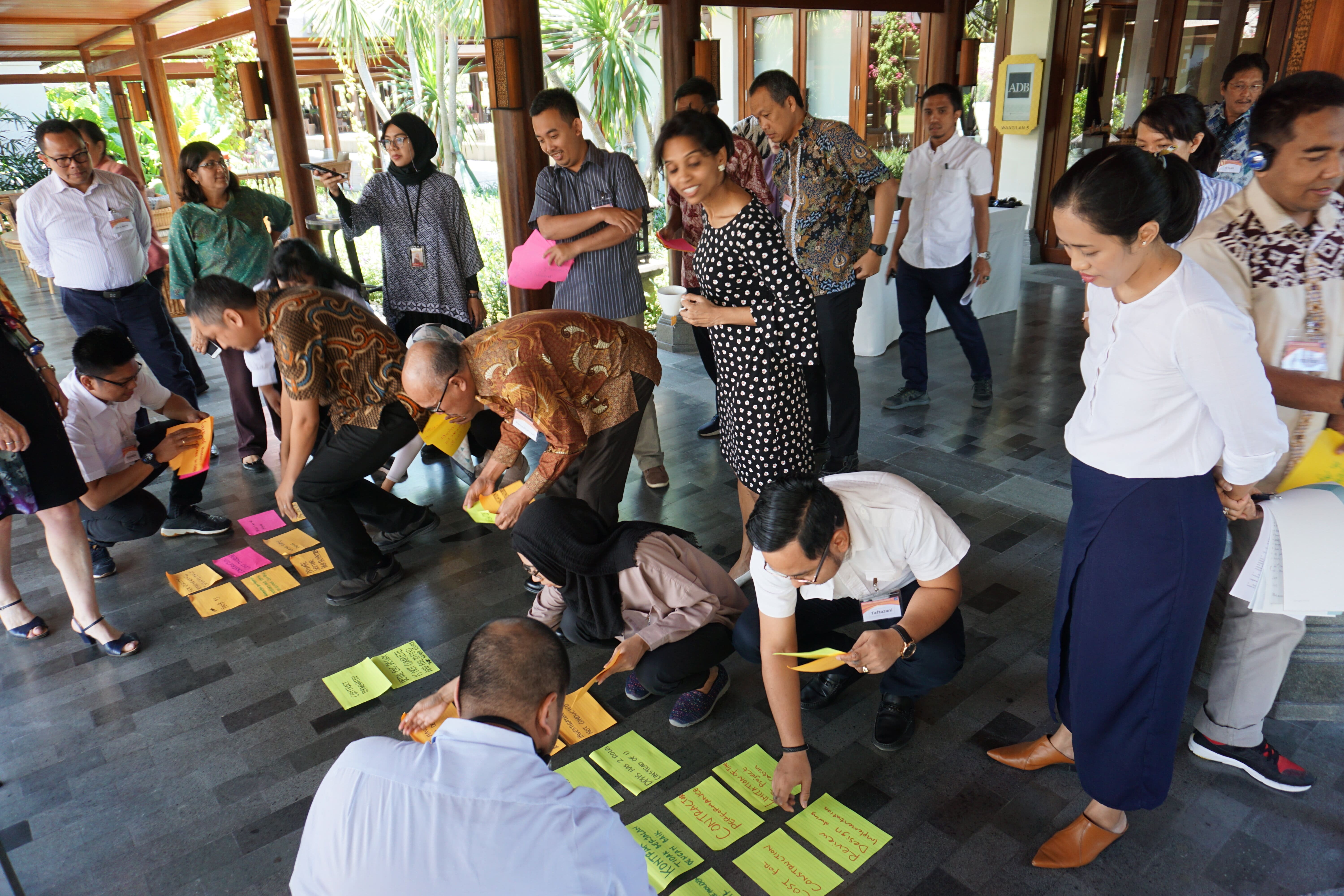
Introduction to Problem Solving
This course is a foundational module designed to introduce learners to key concepts in problem solving and is best completed prior to face-to-face learning. Topics include identifying what is a problem and what is problem solving. It explores the types of typical problems that occur on ADB-assisted projects. The module also introduces learners to a problem solving methodology for analyzing and addressing problems, and contains practical exercises using several problem solving tools.
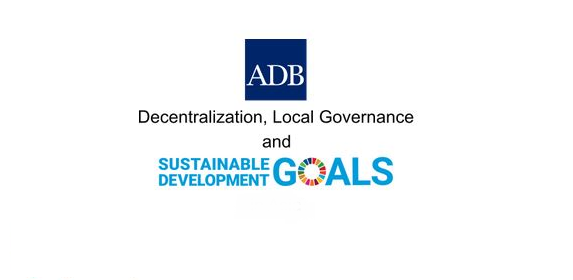
Invitation to Participate: 2023 E-Learning Course on Decentralization, Local Governance, and Localizing Sustainable Development Goals in Asia and the Pacific
The registration for the 2023 edition of the e-learning course on Decentralization, Local Governance, and Localizing SDGs in Asia and the Pacific is now open. The tutored e-learning program is designed to address the learning needs of ADB staff and government officials of ADB’s Developing Member Countries (DMC). Its potential learning benefits include
• Understanding basic concepts of decentralization and local governance (such as the different dimensions and modalities of decentralization)
• Introduction to planning and budgeting at the subnational level
• Greater awareness of the implementation challenges of DLG reforms (such as vertical and horizontal coordination, the linking of functions and resources in service sectors, the creation of adequate fiscal decentralization frameworks, and adequate monitoring and evaluation of DLG reforms)
• Familiarization with the policy linkages between the 2030 Agenda and its Sustainable Development Goals, the Localizing SDG discourse, and the legal and fiscal framework for sub-national governments
• Awareness on introducing Localizing SDG approaches into ADB operations and providing advisory support to DMC governments on the approaches.
